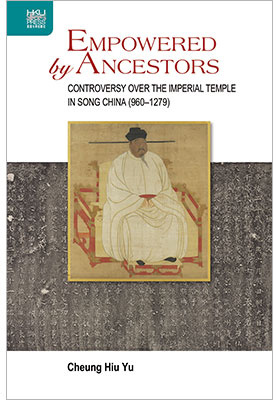Empowered by Ancestors
Controversy over the Imperial Temple in Song China (960–1279)
(威兮其祖:宋代太廟禮儀之爭)
ISBN : 978-988-8528-58-5
February 2021
232 pages, 6″ x 9″, 6 b&w illus., 3 tables and 7 figs.
- HK$620.00
Ebooks
Empowered by Ancestors: Controversy over the Imperial Temple in Song China (960–1279) examines the enduring tension between cultural authority and political power in imperial China by inquiring into Song ritual debates over the Imperial Temple. During these debates, Song-educated elites utilized various discourses to rectify temple rituals in their own ways. In this process, political interests were less emphasized and even detached from ritual discussions. Meanwhile, Song scholars of particular schools developed various ritual theories that were used to reshape society in later periods. Hence, the Song ritual debates exemplified the great transmission of ancestral ritual norms from the top stratum of imperial court downward to society. In this book, the author attempts to provide a lens through which historians, anthropologists, experts in Chinese Classics, and scholars from other disciplines can explore Chinese ritual in its intellectual, social, and political forms.
“Cheung knows the history and culture of China’s Imperial Temple system best and pulls together a decade of research to share his mature reflections. Most modern scholars have avoided this arcane institution; Cheung clarifies its role in Song political culture, its influence in late imperial China, and its legacy in contemporary constructions of cultural memory and legitimacy.” —Hoyt Cleveland Tillman, Arizona State University; coauthor of Cultural Authority and Political Culture in China: Exploring Issues with the Zhongyong and the Daotong during the Song, Jin and Yuan Dynasties
“Professor Cheung helps us wrap our minds around the weight Song Confucian scholars put on reviving ancient rituals. He does this by digging deeply into their positions on the arrangement of the Imperial Ancestral Shrine and placing their contentions in both political and intellectual contexts.” —Patricia Ebrey, University of Washington; author of Confucianism and Family Rituals in Imperial China: A Social History of Writing about Rites



